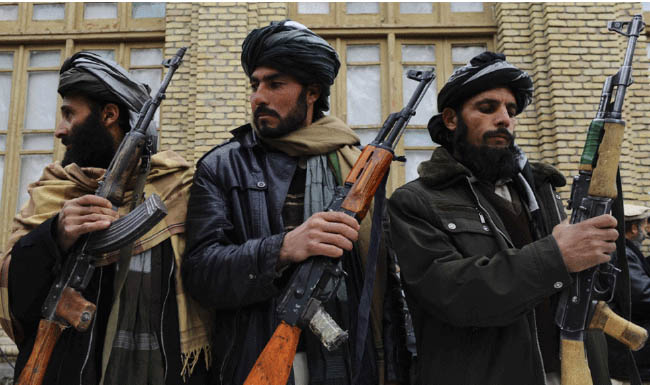The Taliban militants have exercised their dogmatic beliefs, which have been against religious principles and moral values. The harsh practices of the Taliban for more than two decades in Afghanistan had no Islamic basis. Streams of blood have been shed as a result of the attacks and suicide bombings carried out by the Taliban outfit. They have been widely involved in anti-religious practices.
The Taliban have been violating the rights and dignity of people on a large scale. They showed respect neither to religious sharia nor to ethical code. For instance, Afghans suffered severely under the Taliban and a scores of people were killed in cold blood for no particular reason. Initially, the Taliban sought to observe religious tenets to some extent; however, their war was colored with sectarianism and ethnicity atthe end of its regime in Afghanistan. Therefore, a large number of individuals were killed on the grounds of their race, color, and creed. The Taliban had to employ this strategy in the wake of lacking soldiers so as to recruit on the basis of race and ethnicity. In other words, ethnic tendency outshined religious tenets in the war waged by the Taliban.
The Taliban’s involvement in cultivating and trafficking narcotic drug reveals their indifference to Islamic tenets. Cultivating narcotic drug, which is against Islamic sharia, was and is supported by the Taliban militants.
Similarly, the Taliban’s attitude toward women has no Islamic basis. Women have been treated as pariahs and had to stay within the four walls. They have been considered as object to satiate the carnal desire of men. Women have been flagellated and punished harshly in desert court. Their inherent dignity was disregarded. In short, the misogynistic view of the Taliban was contrary to Islamic tenets.
Now, the Pakistani religious ruling has issued a fatwa (religious decree) against suicide bombing. In a book titled Pakistan’s Message published by the government, more than 1,800 Pakistani clerics representing various Islamic sects declared suicide bombings to be forbidden under Islamic principles. They also called for a complete ban on violence in the name of jihad by non-state groups.
“This fatwa provides a strong base for the stability of a moderate Islamic society,” Pakistani President Mamnoon Hussain wrote in the book, adding that Pakistanis can “seek guidance” from the fatwa “for building a national narrative in order to curb extremism in keeping with the golden principles of Islam.”
This fatwa is a positive move toward combating terrorism but should have been issued many years ago. Perhaps this fatwa will make some of the ideologue militants to hesitate their way; however, militancy will not be ended. The Taliban only claim themselves right and seek to act against any religious or political circles that are having their say against their practices and ideology. The Taliban followed the same act in Afghanistan. For example, a number of religious scholars came under attack in Herat province after leaving a meeting held to condemn the Taliban’s harsh and anti-Islamic practices. Similarly, a great religious scholar Abdu-RabRasul Sayyaf has constantly denounced the Taliban acts and called them against Islamic sharia. He also challenged the Taliban to have a face-to-face debate if they could prove their acts and ideology in harmony with Islamic tenets. Nevertheless, the Taliban plotted against him rather than holding debate.
Meanwhile, the Taliban has targeted mosques several times. They have killed people while worshipping. A simple person who walks in the street knows that shedding one’s blood in holy mosque without sin is against Islamic sharia. Although Afghan religious scholars condemned the Taliban’s acts several times, it could not mitigate insurgency in the country.
It is believed that scores of Taliban’s members do not necessarily fight on the basis of their ideology but for their political and financial interests. On the other hand, many others are not able to change their dogmatic mentality and any words contrary to their beliefs will fall on their deaf ears.
Now that Pakistani clergies have issued fatwa against suicide attacks following the demand of Pakistani officials to campaign against terrorism, the effectiveness of this fatwa is in doubt. The question is that why have Pakistani scholars issued this fatwa too late? This is the responsibility of all mullahs and muftis to condemn an anti-religious act as soon as they notice. But this fatwa indicates that the act of those scholars is more political than religious.
To fulfill their responsibility, all religious institutions and council will have to participate in combating terrorism and denounce their acts on time. They must campaign against all kinds of violence, mainly militancy, occurring in any parts of the world. All religious scholars need to denounce the ongoing violence and bloodshed carried out by militants. They are to continue their campaign through speeches, newspapers, magazines, and etc.
Home » Opinion » Will Issuing Fatwa against Terrorists Mitigate Militancy?
Will Issuing Fatwa against Terrorists Mitigate Militancy?
| Hujjatullah Zia

